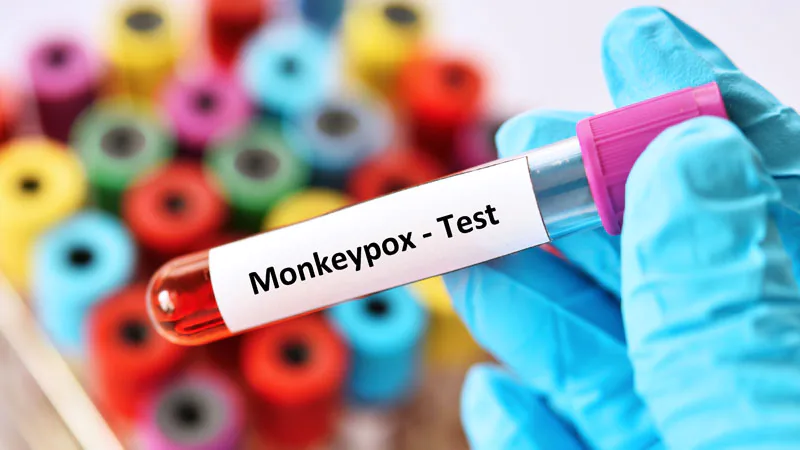At the end of 2019, as the COVID-19 pandemic was spreading across the world, the World Health Organization was sending out tests to 57 countries. The United States was not one of those countries. Due to the declared health emergency, the United States only allowed tests approved by the Food and Drug Administration. This policy led to delays in testing for COVID-19 and, as a result, a rapid increase in virus transmission. We are now at a similar crossroads where we must expand our monkeypox testing capacity to stem the rapid and sustained rise in cases in the United States.
The Food and Drug Administration claims that monkeypox testing must be done on swabs taken from a skin lesion. The Centers for Disease Control and Prevention have provided similar guidance. The problem with this narrow thinking is that skin lesions, while perhaps the most impressive finding, aren’t always that First Manifestation of monkeypox. Many, if not most, patients who contract monkeypox report a “prodromal period,” or period of fever, fatigue, and swollen lymph nodes. During this time, it is possible for infected people to spread the infection to others.
The premise of limiting testing to lesions rests on the notion that only lesions are infectious. However, in previous monkeypox outbreaks, human-to-human transmission via saliva was thought to occur in a subset of patients. In addition, new data show the ability to detect viral DNA in the saliva of infected people even before the rash has manifested itself. The identification of asymptomatic cases, as well as the presence of viral DNA in various locations in the body, has led many experts to suspect that monkeypox patients have the potential to transmit the infection before the rash develops. Therefore, waiting for the rash to develop may serve to put close contacts of infected individuals at risk of infection and likely exacerbate the spread of the disease within the community.
The central component of our current public health strategy to contain the monkeypox outbreak is very similar to our response to the COVID-19 pandemic: case finding, isolation and contact tracing, complemented by post-exposure immunization through a severely limited supply of vaccines. However, for this strategy to be effective, we need to identify cases before an infected person spreads the infection within the community. Waiting for the rash to appear can directly undermine any utility of our current disease control strategy.
Published reports from around the world are increasingly emphasizing the benefits of mucosal swabs taken from the rectum or oropharynx. In Belgium, asymptomatic cases of monkeypox have been identified by rectal swabs. In a study of 12 cases of monkeypox in Spain, all 12 patients had positive saliva tests. Similar results have been reported from the UK. Throat swabs were also commonly positive (20 out of 29) in cases tested in a large study across 16 countries. In particular, there are cases where the throat swab is falsely negative. However, studies have also documented false-negative swabs from a skin lesion. The point is not that all cases of monkeypox will be caught by oral fluid or throat swabs, but that many more are likely to be detected – and sooner – than if we relied solely on lesion swabs.
It turns out we can use more than just the benefits of our experience with COVID-19 to fight monkeypox. Publicly available COVID-19 testing sites, of which there are many, can serve a dual purpose with the addition of monkeypox testing. Given the high co-infection rates with sexually transmitted infections identified during the current outbreak, sexual health clinics that routinely test rectal and throat swabs for sexually transmitted infections can also routinely screen for monkeypox using the same swabs.
The communities suffering most from the current outbreak are often already marginalized. Waiting for lesions to develop to test for monkeypox only ensures continued transmission and suffering in these communities. We cannot afford to make the same mistakes we made at the beginning of the COVID-19 pandemic: testing needs to scale up quickly and go beyond lesion swabs, to early detection of cases, isolation, vaccination and treatment to help contain the current outbreak. The opportunity to stop the spread of monkeypox is now.
Follow Medscape on Facebook, TwitterInstagram and YouTube
#Monkeypox #Stop #Testing #Lesions


Leave a Comment